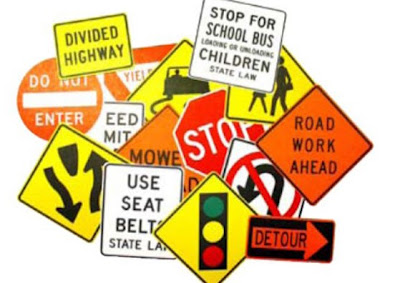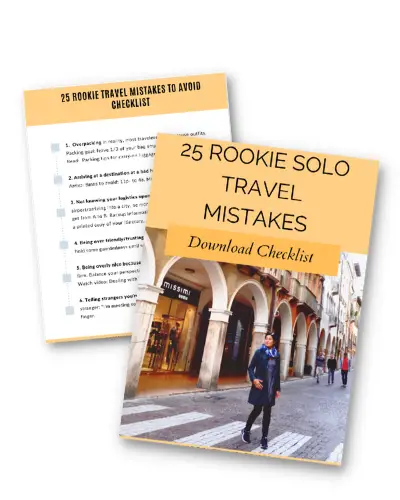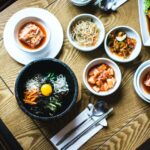Last Updated on June 7, 2023 by Christine Kaaloa
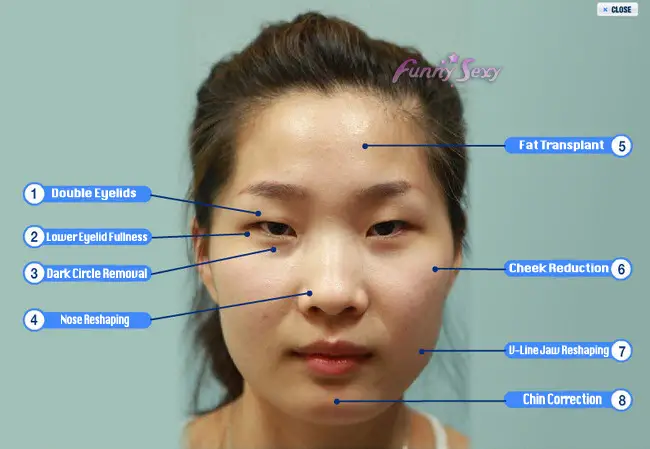
6 Ways Expats experience culture shock in Korea Photo: Academia.com
It’s another new installment of my Just Show Me Pictures! series. It’s month five in Korea and I can’t call myself a “newbie” expat anymore. This doesn’t mean I don’t experience moments, when I still feel like one.
Although I’ve had a proper acclimation period, these days I find myself ridiculously tired. I look like a Korean teen asleep on a bus, exhausted from hagwons and pressures of non-stop study mills. They remind me of my ambitious life in New York, when I averaged three hours of sleep a night and used to steal winks on the subway. After five years of living on a non-stop treadmill, my insides began feeling run-down and haggard.
Ironically, when I first arrived in Korea, I used to think those teens looked like me.
And now, I feel like I look like them.
Table of Contents: JSMP : 6 ways expats experience culture shock in Korea
- 1 6 Ways expats experience culture shock in Korea
- 1.1 1. Everywhere there are Korean signs you won’t be able to read or translate
- 1.2 2. Mysterious foods: You can’t fathom some of the things in a Korean diet.
- 1.3 3. Eating out is a workout if you’re vegetarian
- 1.4 4. You find parts of Korean culture backwards or extreme.
- 1.5 5. You attempt to respect the culture, even if you don’t understand it.
- 1.6 6. You always hear the word weygook spoken in front of you and it’ll get *really* annoying.
- 1.7 Lost in translation
- 1.8 What ways do expats experience culture shock in Korea
6 Ways expats experience culture shock in Korea
I have a mysterious expat illness. Oddly, living in Daegu my daily sleep routine averages anywhere from five to seven hours a day. It’s more sleep than I’ve ever gotten and I’m still tired!
Mental fatigue &culture shock. It’s about battling a fatigue, that comes from an overwhelmed brain, trying to translate and make sense of its foreign surroundings. Here’s examples of ways expats can get lost in Korea:
1. Everywhere there are Korean signs you won’t be able to read or translate
In the back of your brain, there’s a tiny alarm imagining that one of these signs, might be communicating something very important . What if you’re missing an important message?
2. Mysterious foods: You can’t fathom some of the things in a Korean diet.
Although I know Korean food can be delicious and healthy, I’m still trying to build a bridge to trust it. In Korea, there is a thing such as “too much information”. Walking around marketplaces and street fairs, you hit the shock of too much information. That information could scare you.
Read Fear Factor Korea: Foods that may make you cringe.
Read Fear Factor Korea : Fresh foods! (Part II)

3. Eating out is a workout if you’re vegetarian
You’ll want a Korean friend to introduce you to Korean food, because unless you get some help, you won’t know what you can eat. School lunches expose you to a lot and there’s always students and fellow colleagues to help you understand and cajole you into trying the food on your plate. But otherwise, you’re on your own.
Dining out, you’ll spend chunks of time searching for picture menus and something familiar. Most restaurant menus are written in Korean and even if you and your expat friends could read it, you still might not have a clue as to what you’re ordering. If you’re a vegetarian, you might return home empty-handed and staring at a refrigerator, which continues to be stocked only with the food items you can understand.
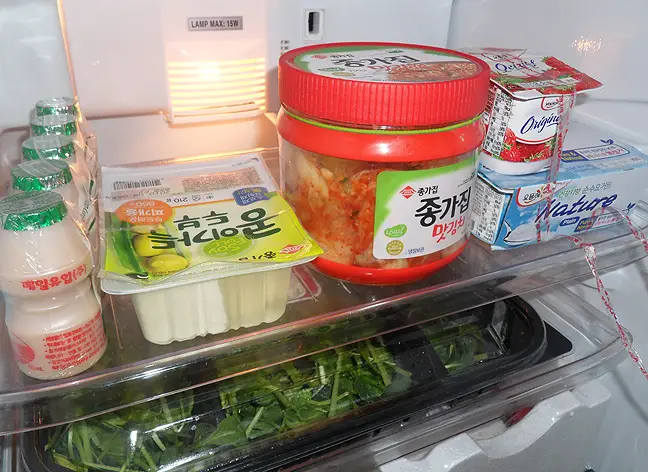 This is my Kimchi diet (with yogurt & tofu); Kimchi does have fish/oyster sauce in it.
This is my Kimchi diet (with yogurt & tofu); Kimchi does have fish/oyster sauce in it.
4. You find parts of Korean culture backwards or extreme.
There are times you want to squeal with delight “Look, look… they don’t have this in the U.S.!” Then there are others times, you stand stunned or shocked, thinking the same thing. We don’t have squat toilets with vanity mirrors in front of them or plastic surgery mural ads in every main subway.
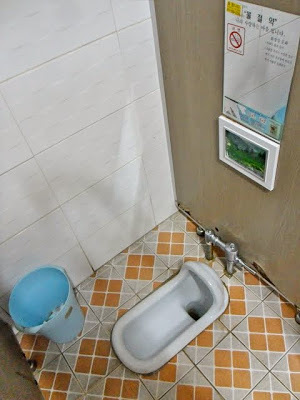 Squat toilet with vanity mirror in a Korean Bus Station
Squat toilet with vanity mirror in a Korean Bus Station
 Plastic surgery ads are in many subways and in magazines. Photo credit: Jezebel.com
Plastic surgery ads are in many subways and in magazines. Photo credit: Jezebel.com
5. You attempt to respect the culture, even if you don’t understand it.
… What’s up with couples wearing matching outfits?
…What makes Korean guys okay with dressing like this; whereas, the only time American guys will dress like this is for a sports game or Halloween?
… Why are Koreans adore wearing English words on their clothes or listening to English songs when they don’t know what it means?
That last line sound okay to you?… Well to put it into better perspective, I’ve heard rap music with blatant F-bomb curses, played in a sophisticated cafe with small children. I’ve also seen elementary school kids in t-shirts with sexual innuendos like “Suck my balls!“. WTF, Korea?
Read 10 Quirks you didn’t know about Koreans

6. You always hear the word weygook spoken in front of you and it’ll get *really* annoying.
… So what was up with that ten minute speech my Korean co-teacher gave our class, where she mentioned my name a handful of times ? And why then, did the class do exactly opposite of what I just told them?
… Why is my co-teachers using my name in a frustrated tone to others?
… Am I imagining things or am I being talked about… badly?
You’ll grow annoyed in time, when you hear your name in Korean conversation. Korean words will fly over and around you while punctuating it’s speech with your name. It’s as if you’re not there. And no one bothers to translate it for you. You’ve been raised to consider this form of talking about people as rude. Well you know what… it’s not in Korea.
Lost in translation
At some point, you get tired of people translating things for you; and then, you get tired of them not.
My inquisitive nature had a lot of energy, when it first arrived in this country. But over time, I found that asking questions took just as much brain consumption, as trying to translate the answer I was given …if I received an answer at all.
The mysteries of a foreign country are endless and answers are simply in the form of more questions. Even my subconscious works on the Korean jigsaw puzzle as I sleep…
It’s not that I don’t want to learn about Korean culture. I’ve just momentarily lost some of my enthusiasm to actively pursue answers for all the questions that I have. I’m tired of translating things, damnit! I’m tired of trying to find the answers to end my ongoing curiosity.
Instead, maybe for the moment, it’s just easier to be lost in Korea.



